In English, the Hebrew word “yesod” (pronounced yeh-sode) translates to “foundation.” Given its multiple layers of meaning, it’s a fitting moniker for a farm inspired by Jewish values, like Yesod Farm+Kitchen, in Fairview, North Carolina. Yesod suggests “connecting with Jewish ancestral wisdom, specifically with our agricultural wisdom,” says farm cofounder and scholar-in-residence Justin Goldstein.
Yesod Farm+Kitchen is one of several small Jewish-owned farms in the Southern Appalachians. Some, like Yesod, directly invoke Jewish themes in their names or mission, while others are indistinguishable but for their owners’ religious background. All of them, however, share a common experience of being a minority within a minority.
Founded in 2019 by Goldstein and SJ Seldin, Yesod sits on a plot of gently sloping land between Asheville and the spectacular Hickory Nut Gorge. A creek named for a once-prominent local family, the Garrens, runs through the property. As Seldin and Goldstein themselves readily volunteer, they are merely the most recent people to steward these “16 acres of ancestral Cherokee land.”
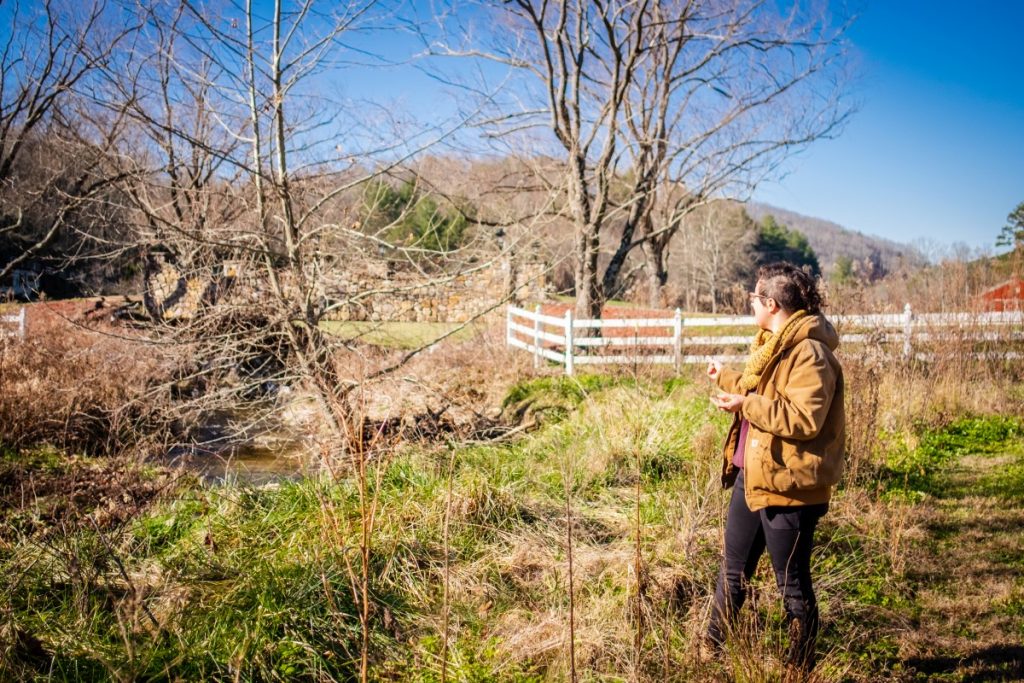
Seldin had been working for several years at nearby community farm, Root Cause Farm, before establishing Yesod. After Seldin’s time at Root Cause came to an end, it occurred to them that farming offered a deeply meaningful link to Jewish life and history. “I left that experience wanting to tap into my connection as a Jewish person growing through the land, with the understanding that Jews are a 5,000-year-old tradition, and the labor that I was doing with my body was the same labor that my ancestors have been doing for thousands of years,” Seldin says.
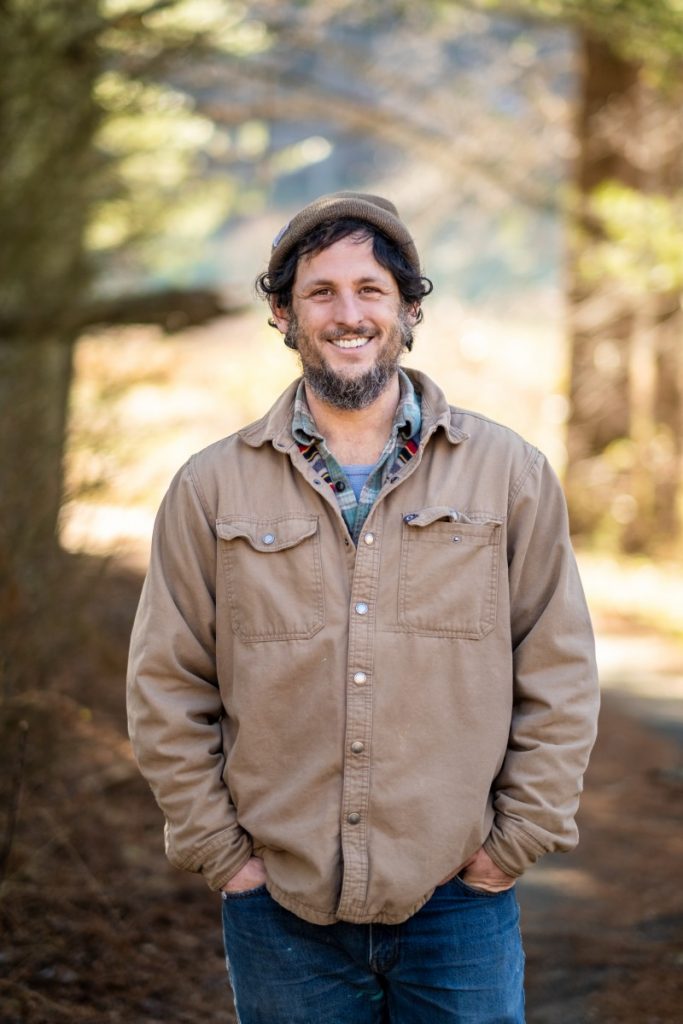
Goldstein’s path was less linear. Before he picked up a shovel, he was a well-liked rabbi at Congregation Beth Israel, a conservative (as in denomination) Asheville synagogue. He had, however, worked on a kibbutz in Israel’s Negev Desert before and during college and dreamed of farming since he was a kid growing up in the Chicago area.
In 2017, he found himself with questions “around my own personal spiritual practice and the sense that this very restrictive life that was very purposeful and meaningful and intentional was no longer serving me in the same way.” He decided to leave the rabbinate.
Around the same time, his marriage ended, for unrelated reasons. “So when the opportunity kind of presented itself to both pursue this lifelong dream, and also incorporate the wisdom that I’ve learned over the years, the timing just worked in that moment in my life,” Goldstein says.
For their first planting, in December 2019, Seldin and Goldstein put in 18 pawpaw trees. Last year they grew a mix of annual fruits and vegetables, including potatoes, blue corn, tomatoes and peppers, as well as flowers, wheat and sorghum, among other crops. But long term they hope to focus on perennials indigenous to Western North Carolina and the “seven species” of the land of Israel, as described in the Book of Deuteronomy: wheat, barley, grapes, olives, dates, pomegranates and figs.
Before COVID-19 struck, Seldin and Goldstein had been hosting educational programs onsite and working out plans to build a cooking space – the “kitchen” in Yesod Farm+Kitchen. Like millions of others in the food industry, these activities have paused as they have been forced to rethink their goals. For the time being, they have shifted their efforts exclusively to growing produce that can be donated to local food banks.
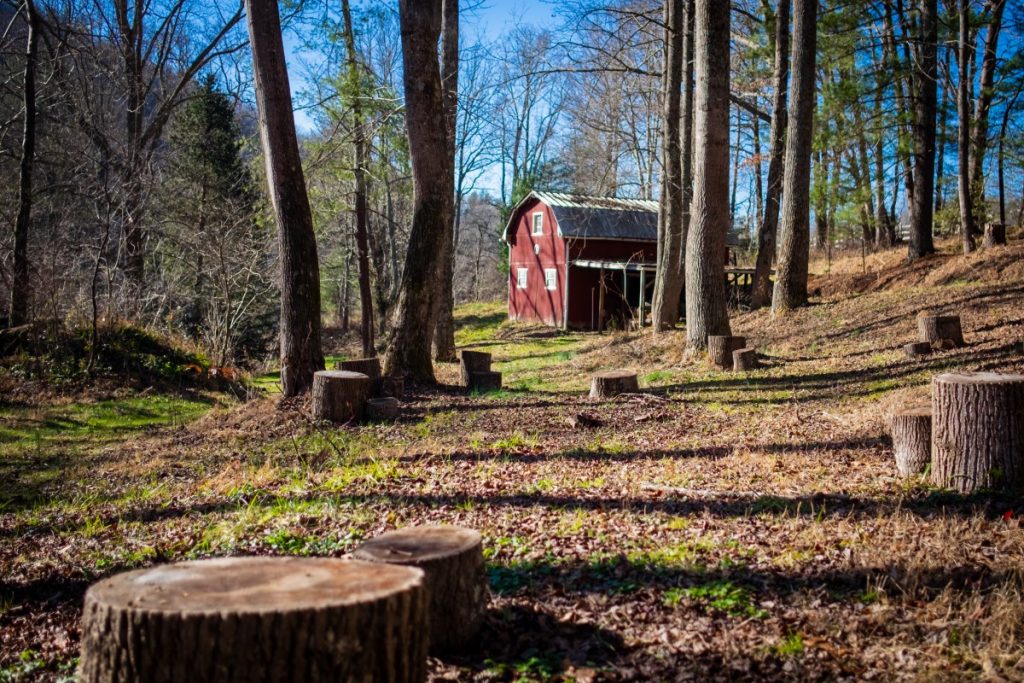
Even more important than the specifics of Yesod’s crops, though, is its mission. Seldin and Goldstein have embraced the Jewish principles of shmita – every seven years land is to lay fallow and its produce given to the hungry – and the Jubilee – after the seventh cycle of shmita, the 50th year, land is “released” back to its ancestors.
“This is an economic principle that prevents landowners from using their land to secure more wealth. So you can’t ever sell land in perpetuity, you can only lease it for 49 years. This way one family cannot continue to acquire more and more property,” Goldstein explains. In essence, the purpose is to foster sustainable farming practices that serve the common good. In Israel, many agricultural operations are legally bound by laws pertaining to these principles.
Seldin had Jewish farmers in mind well before Yesod came to fruition. In early 2017, while attending a food conference, they decided to organize an impromptu get-together for Jewish farmers in attendance and see if anyone would come; 11 people showed up. At the end of the meeting, they and another attendee, Shani Mink, launched a Facebook group they dubbed the Jewish Farmer Network (tagline: “Welcome Back to the Land”).
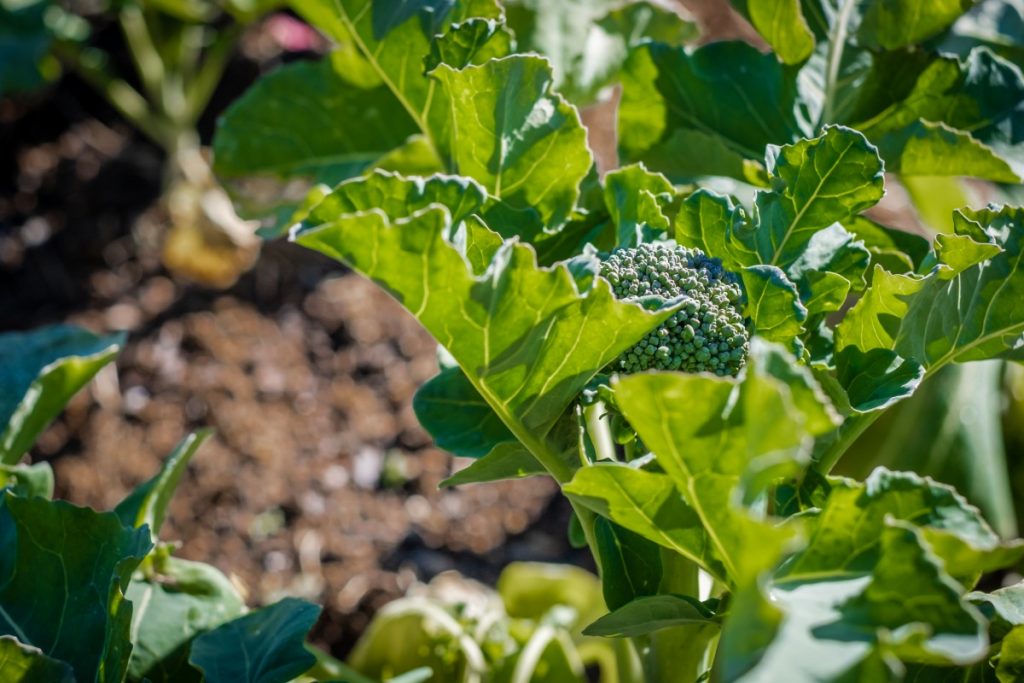
Nearly four years on, the network now counts more than 1,000 members. Interest has been so strong that the group held its first annual conference this past March, just before the pandemic shut the country down. The 2021 conference will be held virtually on January 24 and 31.
Yogev Von Kundra was one of the attendees at the inaugural conference. He’s the founder of Deep Roots Farm in Damascus, Virginia, an Appalachian Trail town in the state’s Southwestern corner. On his 10 acres of earth, he raises cows and goats and grows produce, grain and medicinal herbs. Similarly to Seldin and Goldstein, he says farming has helped him express his Judaism in a different but profound way.
“Like many Jews throughout the United States, I struggled connecting with the religious side of my Judaism, and it was only much later in life that I realized that there was another side at all,” he says.
“[It] was huge for me to be able to connect with other Jewish farmers [through the Jewish Farmer Network conference]. I felt like I didn’t have to really put myself out there, that the ideas and what everybody was saying was so much already in alignment with how I see the world and how I identify,” Von Kundra says.
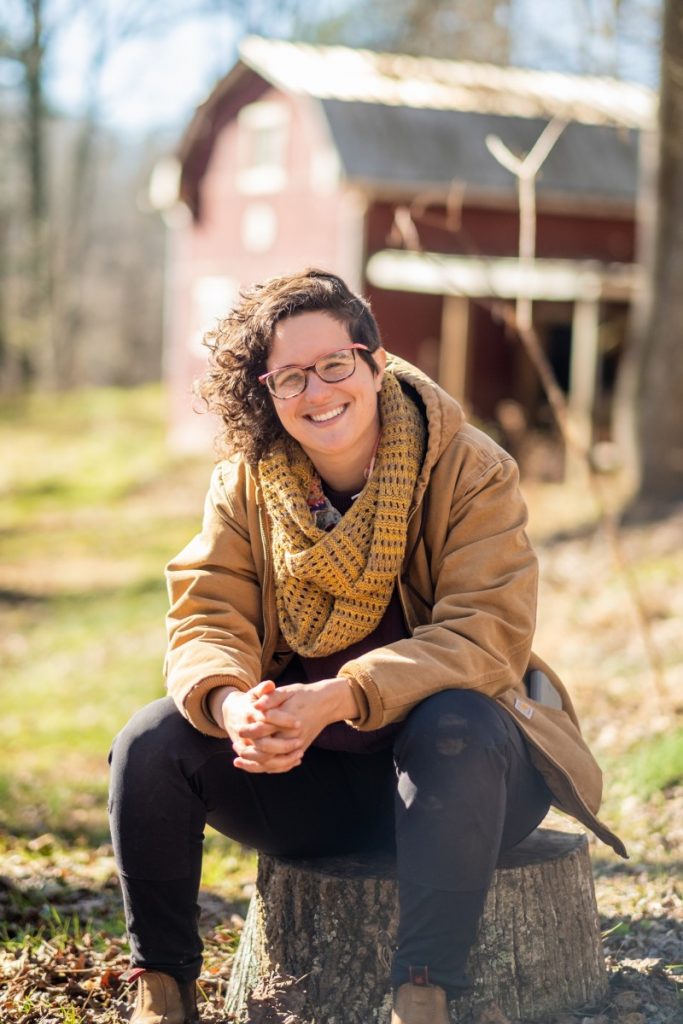
The conference also helped him gain an appreciation for the diversity within this small but growing space, he says. “It was so inspiring to see such a huge contingent of Black Jewish farmers and trans Jewish farmers, queer farmers, and a lot of folks with intersecting identities. . . It really has expanded my understanding of who a Jewish farmer is.”
To that end, the term “Jewish farmer” really shouldn’t be treated like a curiosity, say Goldstein and Seldin. Each maintains that farming is literally and figuratively elemental to Judaism and the Jewish people.
In fact, the Hebrew calendar, which is based on a lunisolar cycle, mandates a leap month to ensure agricultural celebrations such as Sukkot, Shavuot and Passover — all major Jewish festivals — occur in their proper season. In more recent times, from 1908 to 1959, there was even a monthly Yiddish- and English-language magazine, “Der Idisher Farmer” (“The Jewish Farmer”), published in the United States; it was distributed by the Jewish Agricultural and Industrial Aid Society, a mutual-aid organization that helped match newly arrived Jewish immigrants living in coastal cities to land in the interior.
As a result, this supposed revival of Jewish farming is not actually a “re-creation — it is simply a continuation of something Jews have been doing for literally thousands of years,” says Andrew Berns, a professor of Jewish history at University of South Carolina. “One-sixth of the Mishnah, the cornerstone of Jewish Oral Law, is concerned with agriculture.”
Berns and Seldin attribute the stereotype that “Jews don’t farm” to antisemitism and internal community pressure to assimilate and appear a certain way. For these reasons (and others), Jewish scholars and commentators have tended to prioritize “Jewish contributions to politics, or economics, or science or philosophy. And those things don’t really happen on farms or ranches,” Berns says.
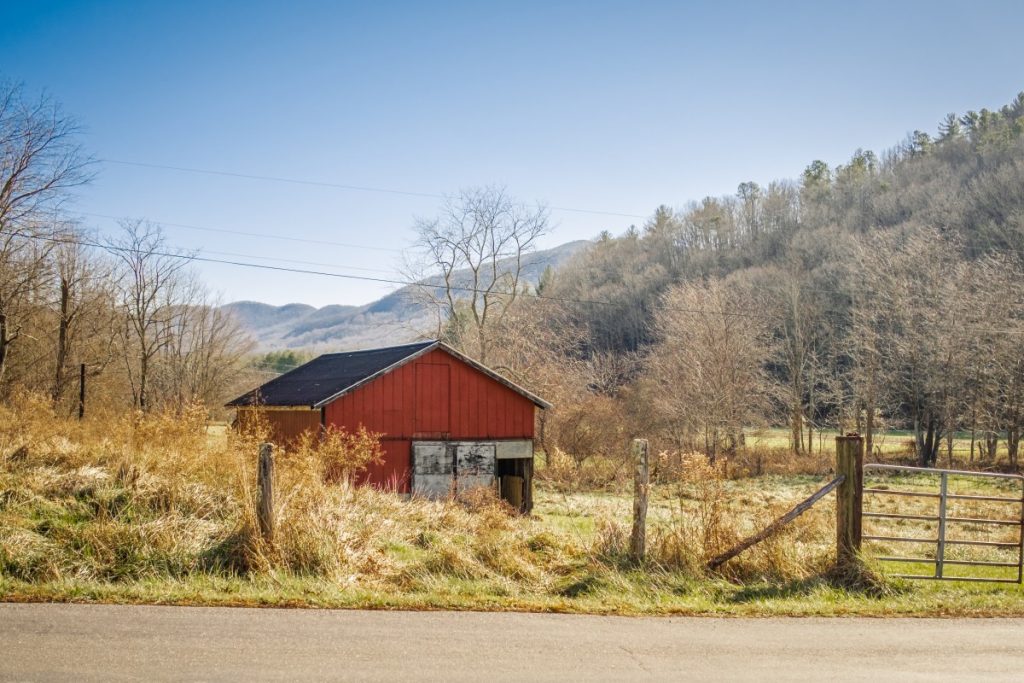
Despite or because of these misconceptions, a new generation of American Jews is pushing back on old stereotypes about who farms. For many of them, farming offers a satisfying way to join their concern for the environment and the food system with their heritage.
“I think a lot of people in our culture, and I know this from my students, are very aware of the tragedy of industrial agriculture,” says Berns. “And whether they’re reading Wendell Berry or watching Netflix documentaries — whatever it is — they’re aware that this is a perversion of how things were traditionally done. And the Jewish religion offers an alternative to this psychosis.”
Goldstein both echoes and embodies this analysis. “There is something going on in folks under 30 that Jewish spirituality in communal settings is not meeting their needs,” he says. “Religious communities in general, across all religions, are shrinking because people’s spiritual needs are not being met. And the way in which younger people are claiming space of their own is pretty, pretty awesome.”
Adam Rosen is a freelance writer and nonfiction book editor in Asheville. To learn more about him, visit www.adammrosen.com.



